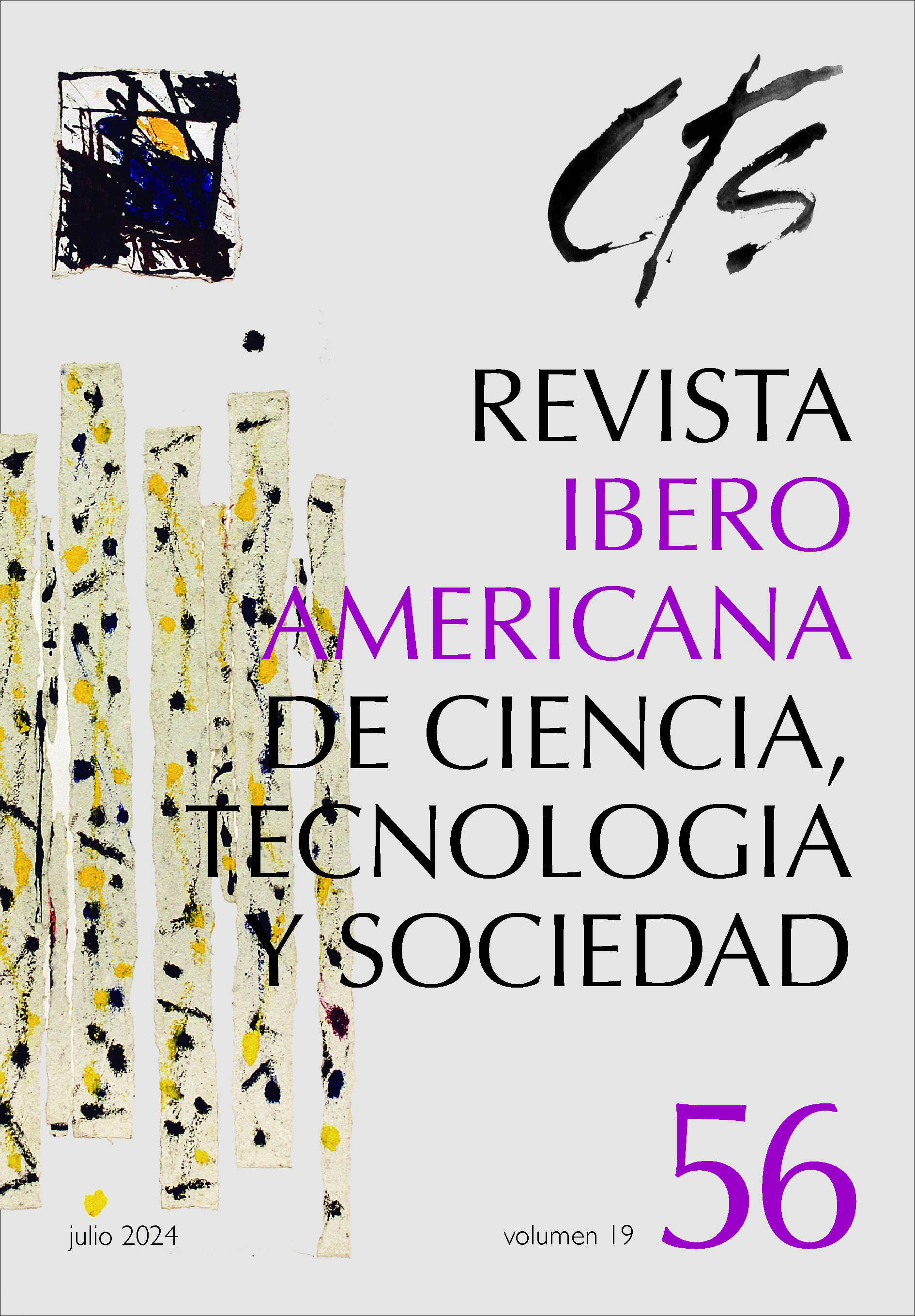Union Representations on Technological Change in Contemporary Argentina
DOI:
https://doi.org/10.52712/issn.1850-0013-350Keywords:
Union representations, technological change, ArgentinaAbstract
This article presents the main results of a research carried out in Argentina in recent years, with the objective of analyzing the position of unions in relation to implicit technologies in the work process. From a socio-technical perspective, an empirical study was carried out in order to recover the representations built by a group of unions around technological change and its effects on different dimensions of work and employment destruction or creation of jobs, improvement or impoverishment of labor conditions, among others. Our findings do not claim to present a universal or homogeneous view of Argentine unions on the innovations implemented in productive processes. However, this article constitutes a significant contribution to STS studies, since it incorporates the generally veiled position of workers and their organizations into the debate.
Downloads
References
Arias, C., Cerezo, L., Cross, C., Gabriel, N. & Ynoub, E. (2019). Estrategias de formación y capacitación sindical. Resultados preliminares de un relevamiento en organizaciones vinculadas con CITRA. Colección #Método CITRA, 3. Buenos Aires: CITRA.
Arias, C. & Cross, C. (2020). Formación profesional y cambio tecnológico en Argentina: sindicatos y la tesis de la doble incompetencia. Revista Trabajo y Sociedad, 21(35), 719-738.
Bijker, W. (1995). Of Bicycles, Bakelites, and Bulbs. Toward a Theory of Sociotechnical Change. Cambridge: The MIT Press.
Bryman, A. (2006). Integrating quantitative and qualitative research: How is it done? Qualitative Research, 6, 97-113.
De la Garza Toledo, E. (1993). Reestructuración productiva y respuesta sindical en México. México: UNAM.
Fernández, A. (1984). Reflexiones sociológicas sobre la historia sindical Argentina. Boletín informativo, 233. Buenos Aires: Organización Techint.
Freeman, C. (1995). The National System of Innovation in historical perspective. Cambridge Journal of economics, 19(1), 5-24.
Godio, J. (2000). Historia del movimiento obrero argentino (1870-2000), tomo I. Buenos Aires: Corregidor.
Hyman, R. (1978). El marxismo y la sociología del sindicalismo. Madrid: Ediciones Era.
Lochmuller, C. (2008). Información, conocimiento y desarrollo económico. Revista EIA, (9), 143-155.
Méndez Paz, C. (2005). La implantación del sistema de créditos europeo como una oportunidad para la innovación y mejora de los procedimientos de enseñanza/aprendizaje en la Universidad. Revista Española de Pedagogía, 63(230), 43-62.
Motohashi, K. (2005). University-industry collaborations in Japan: The role of new technology-based firms in transforming the National Innovation System. Research policy, 34(5), 583-594.
Neffa, J. (2014). Actividad, empleo y desempleo Conceptos y definiciones. Buenos Aires: CEIL.
Nochteff, H. (1994). Patrones de crecimiento y políticas tecnológicas en el siglo XX. Revista Ciclos, 4(6).
Novick, M. (2018). El mundo del trabajo. Cambios y desafíos en materia de inclusión. Serie Políticas Sociales. CEPAL.
Picabea, F. & Garrido, S. (2016). Universidad y Sociedad. Del modelo lineal a la innovación para el desarrollo inclusivo y sustentable. IEC-CONADU. CLACSO, 62-77.
Senén González, C. (2019). Recursos humanos y relaciones laborales: patrones convergentes y divergentes en empresas multinacionales. Estudios del trabajo, 57. ASET.
Silver, B. (2005). Fuerzas de trabajo. Los movimientos obreros y la globalización desde 1870. Madrid: Akal.
Thomas, H. (2007). Dinámicas de innovación y cambio tecnológico en el MERCOSUR. Procesos socio-técnicos de construcción de condición periférica. XXVI Congreso de la Asociación Latinoamericana de Sociología. Asociación Latinoamericana de Sociología, Guadalajara. Recuperado de: https://www.aacademica.org/000-066/55.
Thomas, H. & Buch, A. (2008). Actos, actores y artefactos. Sociología de la tecnología. Bernal: UNQ.
Thomas, H. & Santos, G. (2016). Tecnologías para incluir. Ocho análisis socio-técnicos orientados al diseño estratégico de artefactos y normativas. Buenos Aires: Lenguaje Claro Editora.
Torre, J. (2004). El gigante invertebrado: los sindicatos en el gobierno, Argentina 1973-1976. Buenos Aires: Siglo XXI Editores.
Unzué, M. & Emiliozzi, E. (2017). Las políticas públicas de Ciencia y Tecnología en Argentina: un balance del período 2003-2015. Temas debates, (33).
Vasilachis de Gialdino, I. (2019). Estrategias de investigación cualitativa. Volumen II. Barcelona: Gedisa.
Downloads
Published
How to Cite
Issue
Section
License
Copyright (c) 2023 CC Attribution 4.0

This work is licensed under a Creative Commons Attribution 4.0 International License.
All CTS's issues and academic articles are under a CC-BY license.
Since 2007, CTS has provided open and free access to all its contents, including the complete archive of its quarterly edition and the different products presented in its electronic platform. This decision is based on the belief that offering free access to published materials helps to build a greater and better exchange of knowledge.
In turn, for the quarterly edition, CTS allows institutional and thematic repositories, as well as personal web pages, to self-archive articles in their post-print or editorial version, immediately after the publication of the final version of each issue and under the condition that a link to the original source will be incorporated into the self-archive.











